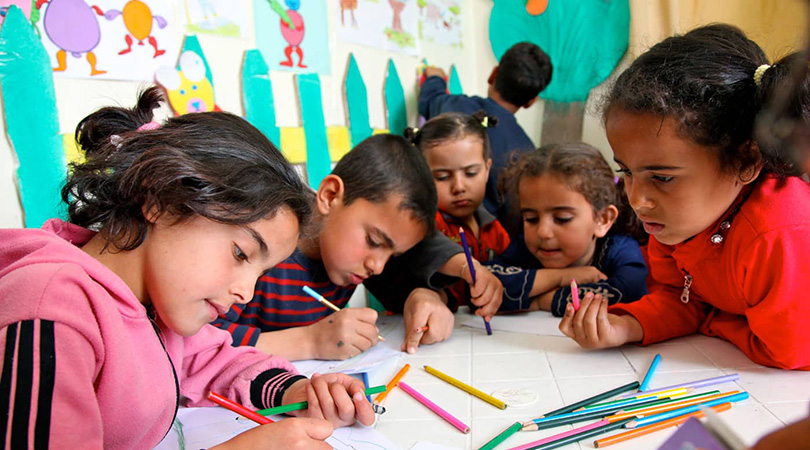A Guide to Child-Friendly Education for a Brighter Future
In an ever-evolving world, the role of education in shaping the future of our children is more crucial than ever before. As parents, educators, and policymakers, we share a common goal: to provide our children with an education that not only equips them with knowledge but also nurtures their skills, creativity, and resilience to thrive in a rapidly changing global landscape.
This quest for effective and child-friendly education is a journey filled with questions, challenges, and opportunities. How do we teach our children for the future? What methods and strategies truly educate children effectively? What makes teaching and learning effective in the modern age? These questions, and many more, will be explored in this comprehensive guide.
How do you teach children for the future?
The education landscape is shifting, influenced by technological advancements, changing job markets, and evolving societal needs. Teaching children for the future involves preparing them to navigate this dynamic environment. It means equipping them with a versatile skill set that goes beyond rote memorization and standardized testing. So, how can we ensure that our educational approaches are future-focused?
Teaching for the future necessitates embracing the following strategies:
1. Critical Thinking and Problem Solving:
In a world inundated with information, the ability to think critically and solve complex problems is invaluable. Encouraging children to ask questions, analyze information, and propose solutions fosters skills that will serve them well throughout their lives.
2. Adaptability and Resilience:
Change is constant, and the future is unpredictable. Therefore, teaching children to be adaptable and resilient is essential. This includes encouraging them to embrace change, learn from failures, and bounce back from setbacks.
3. Digital Literacy:
In today's digital age, digital literacy is a fundamental skill. Children need to be comfortable with technology, understand its ethical implications, and use it as a tool for learning and problem-solving.
4. Collaboration and Communication:
The ability to work effectively in teams and communicate ideas clearly is crucial in the modern world. Educators should create opportunities for collaborative learning and effective communication in the classroom.
5. Creativity and Innovation:
Nurturing creativity and innovative thinking allows children to approach challenges with fresh perspectives. Encouraging them to explore their creativity leads to breakthroughs and unique solutions.
6. Cultural Awareness and Empathy:
In an interconnected world, cultural awareness and empathy are essential. Teaching children to respect and appreciate diverse perspectives fosters a global mindset.
By incorporating these elements into education, we can better prepare children for a future where adaptability and critical thinking are prized skills.
How do you educate children effectively?
Effectively educating children involves tailoring instructional methods to their unique needs and preferences. Every child is different, and what works for one may not work for another. Here are some principles to guide effective education:
1. Differentiated Instruction:
Differentiated instruction recognizes that students have different learning styles, strengths, and challenges. Teachers should adapt their teaching methods to cater to these differences.
2. Active Learning:
Active learning engages students in the learning process. It includes hands-on activities, group discussions, and problem-solving exercises that keep students actively involved and interested in the material.
3. Personalized Learning:
Personalized learning leverages technology and data to customize educational experiences. It tailors content and pacing to match an individual student's progress and needs.
4. Assessment for Learning:
Assessment should be ongoing and formative, providing feedback to students and guiding instruction. It helps identify areas where students may need additional support or challenges.
5. Inquiry-Based Learning:
Inquiry-based learning encourages students to ask questions, investigate topics, and discover answers. It promotes curiosity and independent thinking.
6. Use of Educational Technology:
Integrating technology into the classroom enhances engagement and allows for interactive learning experiences. Tools such as educational apps, virtual simulations, and online resources can be powerful aids in education.
7. Effective Classroom Management:
Creating a positive and inclusive classroom environment is vital for effective education. Teachers should establish clear expectations, rules, and routines while fostering a sense of belonging and respect.
These principles can help educators design learning experiences that cater to individual needs, promote active engagement, and ultimately lead to effective education.


